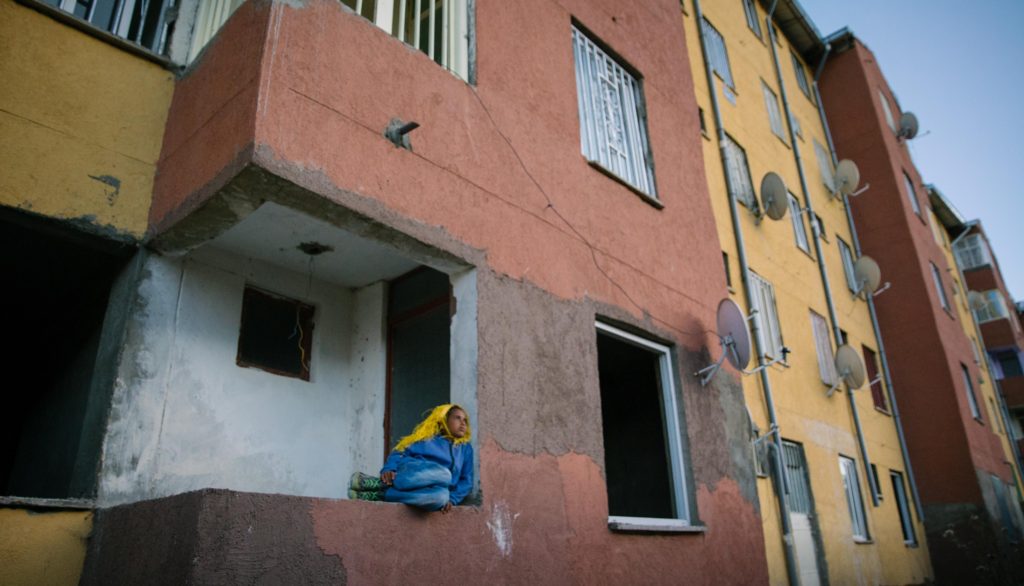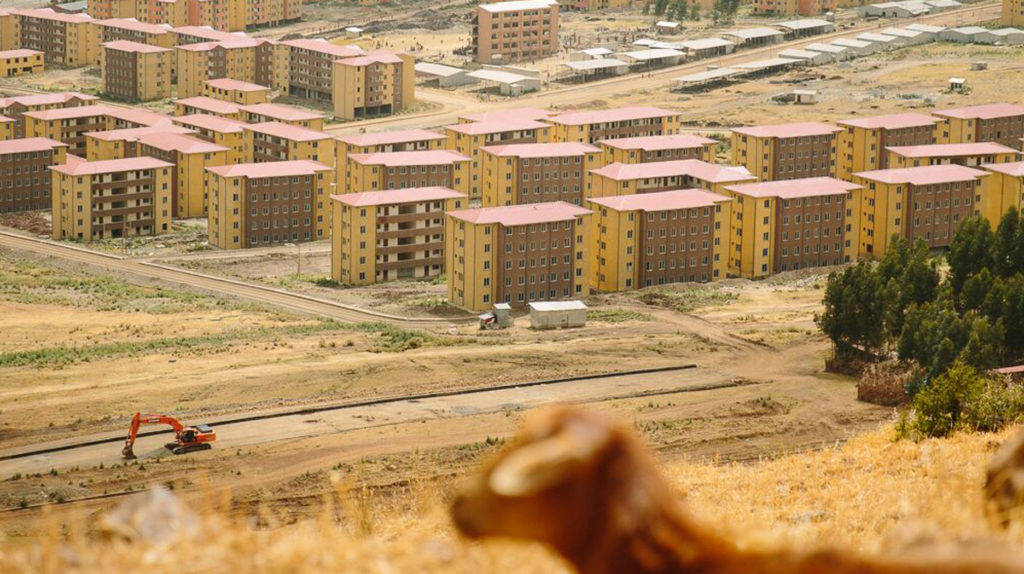Review: Anbessa (2019)

On March 20th, Mo Scarpelli’s short documentary Rome, Closed City was published on the New Yorker’s website, showing ghastly images of Italy’s capital that under normal circumstances is bursting with life. It’s a reminder of times we currently live in, crippled by fear of a dangerous virus and marked by a global insecurity about the outcome of our quarantined life. The film arrives a bit over a year after the world premiere of Scrapelli’s critically acclaimed feature length documentary Anbessa. that screened in the Generation section of the 69th Berlinale. Diametrically opposed in subject matters, Rome Closed City and Anbessa have one thing in common – the filmmaker’s emotional connection to images captured by her own camera. Scrapelli does not only sign both films as a director, she is the director of photography, the camera woman and the writer, all of which reflects in the way her audio-visual language is built.
Anbessa is a story about Asaif, a boy who lives with his mother in a mud house amidst the growing block of houses in the expanding suburb of Addis Ababa. While he has to rummage through garbage to find anything that could come handy to his little household – a bit of firewood, a piece of wire or herbs that someone discarded, the “condo children” live a completely different life. Asaif gets confronted for the first time with a notion of another housing world with indoor toilets, electricity, running water and television.

It is as much a local, as it is a universal story of globalization which makes space for one group of people at the costs of the other. Anbessa doesn’t go deep into this phenomena, but it lets the shots of neighboring communities reveal some of its aspects. Scrapelli has chosen to present tiny pieces of puzzle by concentrating on one portrait – Asaif’s reactions to the progressive urbanization of the area bear more relevance than the actual situation. Non-counting one brief encounter in a local bar, the farmer community is barely visible, but also the adult condominium population sneaks in the distance. Children on the other hand are everywhere, and the inequality gets measured through their living conditions. It seems that the only common denominator of the two neighborhoods is the piling garbage blown around by the gusts of wind.
Previously unaware of the commodities outside the small community of Oromia farmland, Asaif’s sadness is growing bigger, and his imaginative inner power of “Anbessa” – a lonely lion he lets run and roar around to protect the house, gets stronger. In challenging lion’s biggest enemy – the hyena, the boy is calling for the protection of the farmland that is being progressively crushed by the government’s housing master plan that is turning teff farms into the terrain for skyscrapers.

Mo Scarpelli merges the documentary and fiction elements by intervening with quite a few scripted scenes, and also in establishing great intimacy between Asaif and the camera. Her observant eye turns to the boy during his experiments with the electronic devices, while he is repairing watches and making his own toys. There is a much greater sense of a good performance than of a documentary, and Anbessa often feels as a fiction biopic. Close-ups tightly frame the face of the boy absorbed in his own world. He gets followed on his ventures outside of the settlement, on his curious visits to the community’s club where the politics and current danger of being chased away from the land are being discussed. The director is present during conversations between mother and son, making the difference in their education become obvious for the sole purpose of underlining societal injustices. It’s the question of the clear division of sexes, and who is asked to brings sacrifices for the benefit of a child’s future. At the same time, Asif’s mother is by no means victimized, and their relationship is portrayed in warm colours. The woman is trying to make ends meet by braiding baskets, and Asaif’s practical knowledge helps the family to survive.
One could ask many “why” questions surrounding the directorial decisions in Anbessa, or maybe it’s high time to accept someone’s desire to make a simple portrait, and see the world through the eyes of that one person.
Mo Scarpelli’s Abessa was screened at the Stockfish Film Festival in Reykjavik that took place between the 12th – 22nd of March.
Original Title: Anbessa
Country: USA
Language: Amharic
Runtime: 85′
Executive Producers: Danielle Perissi, Gelila Bekele
Producers: Caitlin Mae Burke, Mo Scarpelli
Field Producer: Misgan Assefa Lulie
Co–Producer: D.SD. Wigley
Associate Producer: Pierce Varous
Director of Photography: Mo Scarpelli
Editors: Nico Leunen, Thomas Pooters
Music by: Erik K Skodvin
Sound Design: Tijn Hazen
Foley Artist: Vladimir Rakic
Re–recording Mixer: Tijn Hazen, Gustavo A. Gonzales
Colorist: Aharon Rotschild
Featuring: Asalif Tewold, Alem Sebisibe Ayuitenfsu
















